Match enrichment to your curriculum. When booking an activity, choose a theme that matches your teaching. This invites 40 scientists whose work relates to that theme.
These themes will be available throughout the whole year, so you can take part whenever suits you best.
Please let us know if there are other themes you would like to see us offer. Email: support@imascientist.org.uk
Book your Activity
Theme overview
General Science (including Primary curriculum topics)
- General Science
- Animals and Zoology
- Biology
- Chemistry
- Climate Change
- Computer Science
- Earth
- Ecosystems, Ecology, and Habitats
- Electricity
- Energy
- Environment
- Ethics
- Evolution
- Food Production
- Forensics
- Health and Safety
- Health
- Humans
- Light
- Marine and Oceans
- Materials
- Motion and Forces
- Physics
- Sound
- Space
- Sports and Exercise
- States of Matter
- STEM Careers
- Working Scientifically
Biology
- Biology
- Animals and Zoology
- Animals in Research
- Biochemistry
- Cancer
- Cells
- Ecosystems, Ecology, and Habitats
- Evolution
- Food Production
- Forensics
- Genetics
- Homeostasis
- Humans
- Imaging
- Immunology
- Inheritance, Chromosomes, and DNA
- Microbiology
- Nervous System
- Neuroscience
- Nutrition and Digestion
- Photosynthesis
- Plants and Botany
- Reproduction
- Respiration and Gas Exchange
- Skeletal and Muscular Systems
- Sports and Exercise
Health
- Nervous System
- Neuroscience
- Nutrition and Digestion
- Pharmacology
- Physiology
- Public Health
- Reproduction
- Respiration and Gas Exchange
- Skeletal and Muscular Systems
- Sports and Exercise
- Vaccines
Chemistry
- Chemistry
- Atomic Structure
- Batteries
- Chemical Reactions
- Collision Theory and Rates of Reaction
- Detection and Measurement
- Earth
- Electricity
- Elements, Compounds, and The Periodic Table
- Energy
- Energy Changes
- Environment
- Food Production
- Forensics
- Imaging
- Inorganic Chemistry
- Manufacturing
- Materials
- Meteorology, Atmosphere, Climate, and Weather
- Nanotechnology
- Nuclear
- Organic Chemistry
- Particles and Matter
- Physical Chemistry
- Plastics and Polymers
- Renewable Energy
- Spectrometry and Spectroscopy
- States of Matter
- Structure and Bonding
Physics
- Mechanics and Thermal Physics
- Motion and Forces
- Nuclear
- Particles and Matter
- Quantum Mechanics
- Quantum Technologies
- Radioactivity
- Renewable Energy
- Sound
- Space
Earth and Environmental Sciences
- Earth and Environmental Sciences
- Climate Change
- Earth
- Environment
- Food Production
- Geoscience
- Marine and Oceans
- Meteorology, Atmosphere, Climate, and Weather
- Recycling
- Rivers
- Sustainability
- Waste
Technology
- Technology
- Aerospace
- Artificial Intelligence (AI)
- Batteries
- Communications
- Imaging
- Manufacturing
- Robotics
Computer Science
- Computer Science
- Computing
- Artificial Intelligence (AI)
- Communications
- Data Science
- Software
Theme resources
Marine and Oceans

71% of our Earth’s surface is water – we interact with it in so many ways, most of which are unfamiliar to students. Marine sciences are all around us. They help us understand marine resources, habitats, and pollution, developing ways to use and protect our oceans.
In Marine and Oceans Chats, students connect with scientists working on anything from aquaculture and food production to conservation, marine engineering, and renewable energy. They’ll find out how science works, outside of the classroom, in their local environments and beyond.
Questions other students have asked:
- How does a dolphin adapt to the ocean?
- What does it mean to build a farm in the sea?
- What inspired you to research fish health?
Resources to help prepare:
Marine and Oceans themed Chats are funded by Lantra and Salmon Scotland.
Places are fully funded for state-maintained schools.
Cancer
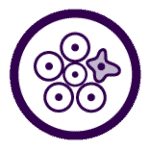
Cancer is a leading health issue worldwide, with 1 in 2 people developing it in their lifetime. This makes it a major area of scientific research, as well as a subject very familiar to young people.
In Cancer themed Chats, students connect with the people working to address this real-world challenge. They see their studies of health, non-communicable disease, genetics, and medicines reflected in world-leading, cutting-edge biomedical research.
Students discover how research impacts human health. They’ll learn how cancer sciences bridge processes from diagnosis, through drug development and clinical trials, all the way to translating data into the clinic to make a difference in people’s lives.
Questions other students have asked:
- Do you think there will ever be a cure for cancer?
- Has your work made any impact on the research of cancer and if so, how?
- How do mutations occur and what do they change to cause cancer?

Resources to help prepare:

Cancer themed activities are funded by the Institute of Cancer Research and the University of Manchester’s Division of Cancer Sciences.
Places are fully funded for state-maintained schools.
Health and Safety
Students who are preparing to enter the workplace will be familiar with the importance of adhering to the quality standards; maintaining health and safety.
In ‘Health and Safety’ themed Chats, students connect with lab technicians, apprentices, and other people working in STEM to explore how they ensure responsibility for health and safety welfare at work.
Genetics
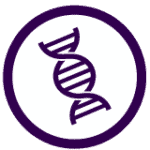
In Genetics Chats, students see classroom topics like inheritance, genetic disorders, and adaptation applied to real-world scenarios and careers. They connect with scientists whose work is applying and advancing our knowledge of genetics across fields like health, forensics, biodiversity, and food production.
Chatting with geneticists can make a complex subject seem less intimidating. Students build on their learning to explore how genetics is improving their world, while finding common ground with the people who are making it happen.
Questions students have asked:
- Could we edit some genes of animals to help them adapt to climate change?
- Why do I have grey eyes when my family has blue or brown eyes?
- What’s your opinion on using genetics to stop or reverse ageing?
Resources to help prepare:

- STEM Learning – Inheritance, DNA and variation
- NHS Genomics Education Programme
- Jeans for Genes – Educational resources
- BBC Bitesize – Inheritance and genetics
Genetics-themed activities are funded by the Institute of Cancer Research, GenSoc, and the NMGN.
Places are fully funded for state-maintained schools.
General Computer Science
In General Computer Science Chats, students interact with diverse people who apply computing skills in their work. Students connect with real people to start breaking down off-putting stereotypes and fostering their sense of belonging.
Leading broad-reaching conversations helps students explore the areas of computer sciences relevant to them. General Computer Science Chats bridge curriculum topics, like data and coding, programming, systems, and cyber security.
Students see their studies applied to real life and across varied roles and industries, from health, to law enforcement, to creative media. They can discover the value and personal relevance of computing skills to further study, careers, and their everyday lives.
Questions students have asked:
- Do you have any tips for me to get better at coding?
- Can artificial intelligence be dangerous?
- How do you reduce bias in AI when training it on datasets that may have bias in them?
Resources to help prepare:

- NCCE – Teach Computing Curriculum
- NCCE – ‘I Belong’ Programme
- Computing at School Resources
- BBC Bitesize – Computing
General Computer Science activities are funded by the NCCE. Places are fully funded for state-maintained schools.
Physics
Physics themes support students’ exploration of how the world around them works. Topics range in scale from subatomic particles to the whole universe, and everything in between. Students can discover the part physics plays in their lives.
Conversations bridge curriculum topics like forces, particles and matter, electricity, space, and energy. Students see their learning in real life, outside of the classroom.
Physics Chats connect students with software scientists like Michael, astronomers like Vicky, and nuclear materials scientists like Calum. Students get personalised responses from physicists whose work helps us to understand our world.
Questions students have asked:
- How does sound travel underwater?
- Where can physics take me in the future?
- Do you see nuclear reactors switching from fission to fusion?
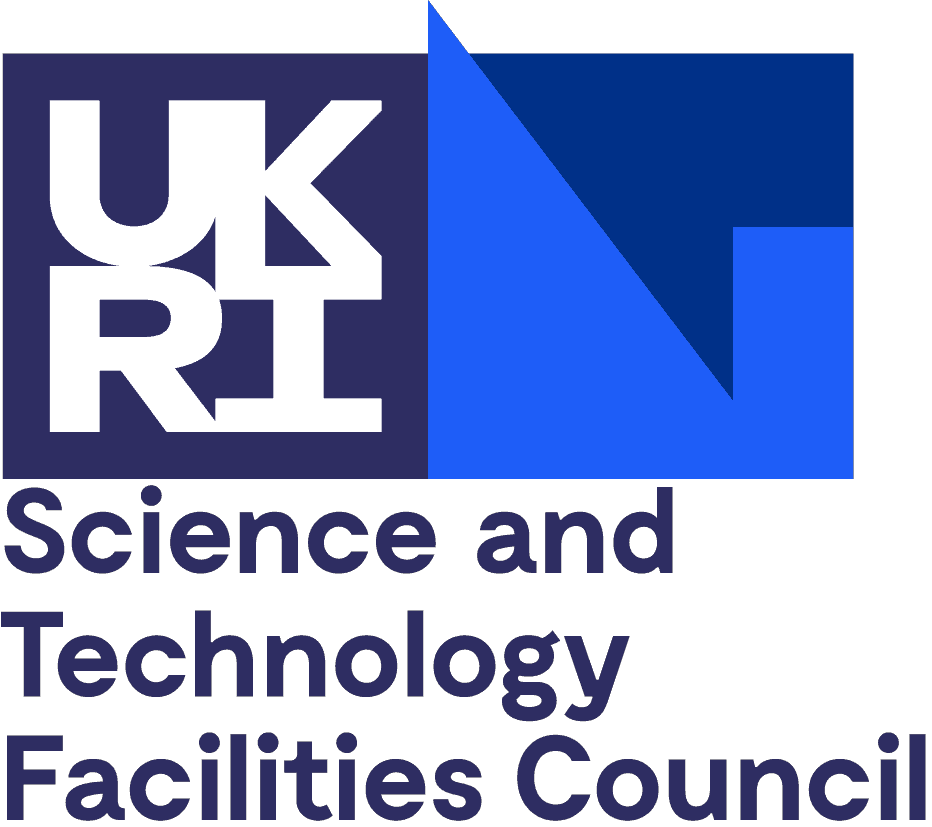
Resources to help prepare:
- STEM Learning – list of STFC resources
- IOP – classroom resources
- UKRI – nuclear physics
- UKRI – particle physics
Physics-themed activities are supported by STFC. Places are fully funded for state-maintained schools.
CERN
CERN (“Conseil Européen pour la Recherche Nucléaire”, or in English; European Council for Nuclear Research) investigates the structure of particles around us. They use the world’s largest and most complex scientific apparatus, and are well known for the Large Hadron Collider (LHC).
Conversations will link to physics topics such as; particles, matter, forces and energy. Students can explore how nuclear energy can contribute to society. They’ll take part in authentic conversations with people who have first hand experiences of working at CERN.
Questions students have asked:
- How long did it take to build the LHC?
- Is it possible a black hold could form from the work you are doing?
- How do you keep the inside of the particle accelerator clean?

Resources to help prepare:
- STFC – Particle Physics Resources
- CERN Youtube Channel
- CERN Educational Resources
- Large Hadron Collider (LHC) – STEM Org
CERN-themed activities are supported by STFC. Places are fully funded for state-maintained schools.
Quantum Technology
Quantum technologies are not new, most mobile phones use quantum technologies in their semiconductors, although with new tech advances companies claim to use it for additional security and communication.
Conversations about quantum technology could lead anywhere, a few new ideas are that it could help us tackle climate change, discover new drug treatments or be used in encryption for IT security. These will encourage learning objectives in forces, particles, energy, cyber security and more.
By connecting with scientists working in this field, such as Quantum physicist Adam, or experimental physicist, John, students will be able to find their own connection to quantum technology, and potentially suggest more.
Questions students have asked:
- Do you think there is a quantum realm?
- How much quicker will quantum computer work than traditional ones?
- How will understanding quantum help us in the future?

Resources to help prepare:
- Explore Quantum Computing – NQCC UKRI
- Quantum City Resources – UK National Quantum Technologies Programme
- STEM Org – Quantum Tech
- A short guide to quantum tech – BBC Ideas/OU video
Quantum Technology-themed activities are supported by STFC. Places are fully funded for state-maintained schools.
Animals in Research
Animals are sometimes used in research to help better understand the impact human disease has on our body as well as the safety of new treatments. It’s an ongoing conversation of competing ideas. The use of animals in research is an ever-present debate.
In ‘Animals in Research’ themed Chats, students connect with scientists who use organisms, like mice, in their research. They’ll ask the questions that interest them to scientists who are committed to improving the welfare of the animals in their care.
Questions students have asked:
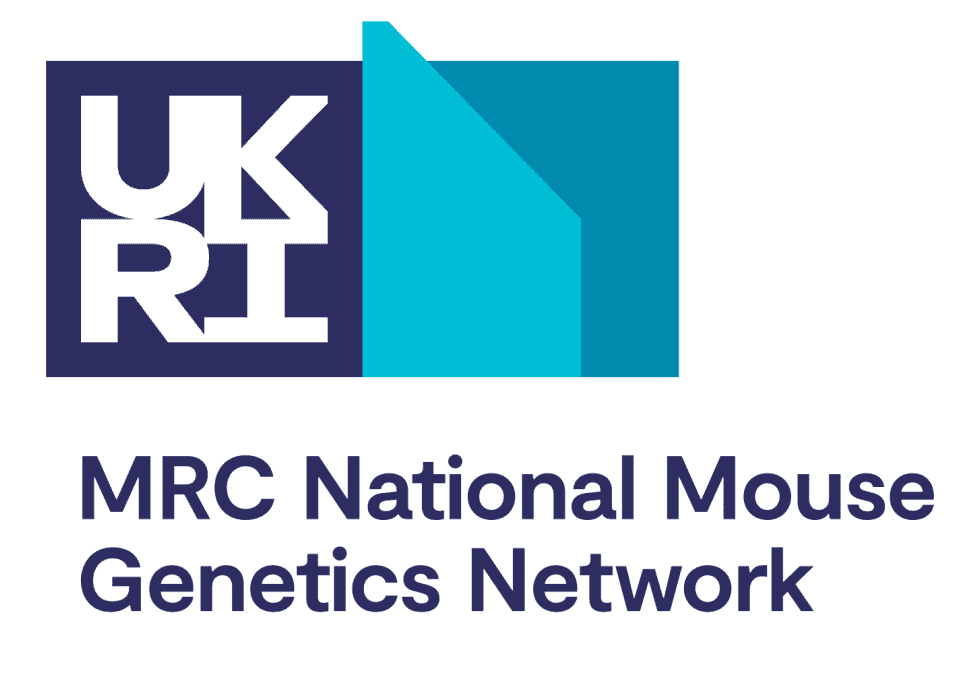
- Is there an alternative to testing on animals?
- What kind of genetic modifications have you done with mice?
- Is there any false information in the animal testing industry?
Resources to help prepare:
Animals in Research-themed activities are supported by MRC National Mouse Genetics Network. Places are fully funded for state-maintained schools.
Chemistry
Chemistry is one of the three main science topics that students study at school. It is a broad subject, with many topics within its umbrella. These conversations would offer students an opportunity to reinforce key learning points with students such as atoms, elements and compounds, materials and the Earth and working scientifically, as well as helping them understand career pathways if they were to pursue chemistry further.
Students could engage with scientists in this subject area such as; Richard, a chemistry lecturer at UAE, Hannah, a chemistry researcher, or Claire, who works at The Royal Society of Chemistry.
Questions students have asked:
- What is the most dangerous explosion you have done?
- Why do the elements have symbols instead of just saying the name?
- What careers are open to you after taking chemistry in high school?
Resources to help prepare:

- Education – Royal Society of Chemistry
- Classic Chemistry Experiments – Royal Society of Chemistry
- Chemistry – BBC Bitesize
- Learning Resources – Dept Chemistry, University of Oxford
- STEM Resources – STEM
Chemistry -themed activities are supported by the Royal Society of Chemistry. Places are fully funded for state-maintained schools.
Imaging
In imaging conversations there are a wide variety of scientists that students could chat to about this topic. They could approach the topic of space imaging and how we have pictures of the Earth, by speaking to Ben, a space scientist, or radiotherapy could be discussed with clinical scientist Ruth.
However, conversations could also delve into topics such as; photography – how a camera works using reflection, how X-rays can be used for medical diagnoses, what ultrasound is – how we can use it for medical and industrial imaging, as well as how bats use ultrasound in echolocation.
These conversations will give the opportunity to link to the national curriculum with light waves, modern technologies and wave motion.
Questions students have asked:
- Why do MRI machines need software writing out?
- How were the original pictures of DNA taken?
- How are pictures of black holes taken?
- What are X-rays and ultrasounds? How are they different?
Resources to help prepare:
- STEM Resources – STEM
- Remote teaching light, sound and waves – Institute of Physics
- From lab to lens: Chemistry and photography – Science and Media Museum
- BBC Inside Science – Magnetic resonance imaging (MRI)
Imaging -themed activities are supported by multiple stakeholders. Places are fully funded for state-maintained schools.
Renewable energy
The origins of Renewable Energy seem unclear, but you can see its use throughout history. Watermills, burning mirrors, windmills to name a few. But with the energy crises in the 1970s, funding and research into renewable energy started to take off.
Students can ask scientists about renewable energies relating to their work, and may even ask if they use it at home. Students connect with scientists that work directly in this field, such as; Manuela who works to generate electricity from water power. These conversations will support learning around forces, energy, energy transfer, electricity and engineering.
Questions students have asked:
- What is the best form of renewable energy in terms of reliability?
- Which renewable energy source has the best benefits?
- Do you think we will be able to switch completely to renewable energy, or do you think we will always rely on some fossil?
- Do renewable energies harm the environment in any way?
Resources to help prepare:

- Fuels and Energy Sources – STEM Learning
- Renewable Energy – STEM Learning
- Renewable Energy – BBC Bitesize
- Renewable Energy Generation – Energy Saving Trust
Renewable Energy -themed activities are supported by Johnson Matthey. Places are fully funded for state-maintained schools.
Chemical reactions
We are surrounded by chemical reactions in our day to day lives, whether it is cooking, driving a car or using a bath bomb. In chemical reaction themed activities students ask questions that are relatable to their life, as well as their learning.
Many scientists work with chemical reactions in a wide variety of workplaces. Students will be able to connect and engage with scientists working in the field, such as John, who is an industrial chemist that makes new materials, or Sarah a chemist that develops air cleaning technologies. This theme supports learning around energy, energy transfers, physical changes of matter and reactions.
Questions students have asked:

- How do chemical reactions work?
- In a petrol engine, the fuel explodes to move pistons, but how does it explode?
- What form of energy is released when baking a cake?
- How many chemical reactions go wrong?
Resources to help prepare:

- Chemical reactions – BBC Bitesize
- Chemistry Resources – Royal Society of Chemistry
- Big Idea Chemical reactions – STEM Org
- Learning Resources – Dept Chemistry, University of Oxford

Chemical Reactions -themed activities are supported by the Royal Society of Chemistry, Johnson Matthey and iChemE. Places are fully funded for state-maintained schools.
Cells
Cells are the building blocks of life, with numerous topic areas and questions that students could ask about this topic. Topics range from cancer and diseases, to biotechnology and aliens. They could approach the topic of cancer research, by speaking to Yana, a cancer researcher working in bioinformatics, or they could converse with self described ‘fish saving mermaid’ scuba diving biologist Rebekah.
These conversations will give the opportunity to link to the national curriculum with living things and their habitats, structure and function of living organisms, and cell biology.
Questions students have asked:
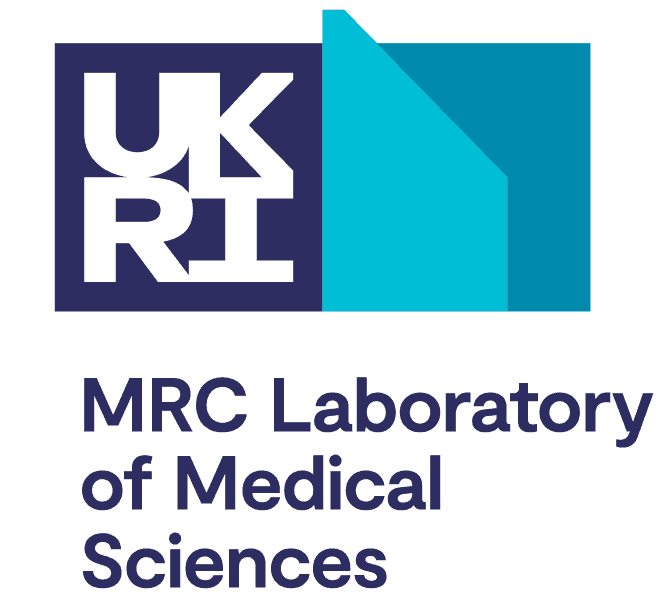
- What are cells?
- How does the immune system work?
- What are the current advancements in cancer treatments?
- What’s your favourite thing about cells?
Resources to help prepare:

- STEM Resources – STEM
- Cell biology – BBC Bitesize
- RSB Learning resources
- The Cell Explorer – Uni of Cambridge
- Cancer Research UK – Information for Students

Cells-themed Chats are supported by multiple stakeholders; MRC Laboratory of Medical Sciences, Rosalind Franklin Institute, and University of Manchester: Division of Cancer Sciences. Places are fully funded for state-maintained schools.
Particles and Matter
In Particles and Matter Chats, there is a vast amount of topics students could ask about. Whether they are learning about the states of matter or more specific topics, such as: string theory and nuclear research.
Students could link their learning and questions by speaking to scientist Sam who designs catalysts to clean up vehicle emissions, or CERN particle physicist, Sinead.
These conversations will give the opportunity to link to the national curriculum, with topics covering the structure and properties of matter, properties and changes to materials and other key learning points in chemistry and physics.
Questions students have asked:
- What do you know about atoms?
- What is your favourite state of matter?
- Can you explain string theory?
Resources to help prepare:

- STEM Resources – STEM
- States of Matter and Particle Theory – STEM
- Particle Model – RSC
- Properties of Matter – IOP
- Properties of Matter videos – IOP
- Educational Resources – CERN
Particles and Matter themed activities are supported by STFC. Places are fully funded for state-maintained schools.

